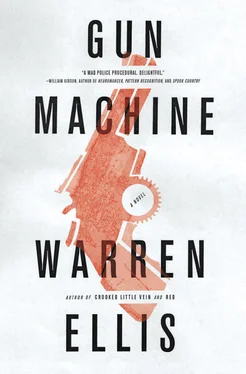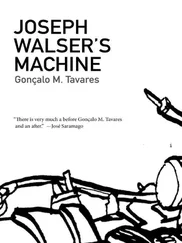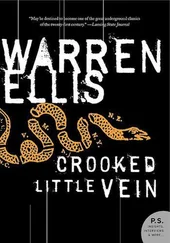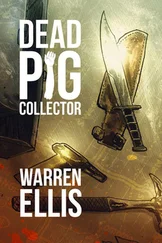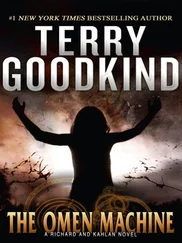“That’s very kind,” said the hunter. “Thank you.”
“The gun will have to come in from New Jersey. I’ll make a call. Be here tonight around seven. It will arrive with my evening shipment. I will take it from the vehicle myself and ensure everything is correct.”
“That is very professional and very timely. Thank you,” said the hunter. “I’ll be here with the money.”
Which he most certainly could have been.
Kutkha did not stand again to shake the hunter’s hand but instead picked up his cell phone and speed-dialed a number, looking at the hunter with the expectation that he was observant enough to know that his audience had concluded. The hunter nodded and left the Russian’s little court. In the hallway, he took his bag from the military man, who watched him walk downstairs to the grotesque, who opened the front door for him and saw him out.
What the hunter knew was that there was the grotesque, the military man, Kutkha, the boy, and at least one additional man upstairs. All but the additional man or men upstairs had seen him. When he returned, there would be at least one other, whichever employee from New Jersey had driven in with his gun and with whatever else Kutkha had previously arranged for his “evening shipment.” Humans, the hunter presumed. In his bag there was the knife and some small tools for living in the forest. A pouch of tinder, a strike, some twine, a few other things. He had the ring on his finger.
He walked to the end of the block, ensured he was out of sight, and began to look for access to the rear of Kutkha’s building.
On the east–west side of the block, five or six doors before a little food store, he found an abandoned hardware store, windows imperfectly whitewashed, the frames in the floors above mostly missing their glass. An official-looking sign had been pasted on the door, but weather had washed many of its words away. There was no one to see him put his knife to the lock and pry the door open. Inside, he closed the door with care and found a standing particleboard display unit to prop against it. The owner had apparently been forced to abandon the place in a hurry. There was still stock here, and many fittings. The hunter crouched in the gloom for a moment, listened, and inhaled. He could faintly detect human feces, but they were old. No one was currently squatting here. He searched what remained of the missing owner’s attempt to live by the cheating laws of exchange in Manhattan. Whatever he took was fair. Mannahatta had been stolen from the Lenape in fraudulent barter. The hunter was no criminal. The spoils of the city on this island were his by right.
The hunter found, among other things, more twine and sliding trays of nuts and bolts that hadn’t been worth the owner’s time to pack and carry. A thought came to him, and he cut himself six feet of twine, gathered a handful of nuts and a few bolts, and looked for the stairway access to the upper floors and ultimately the roof.
Up here, he had an angled view on the rear of Kutkha’s building and clear sight of its weed-choked loading yard and the access alley where cars could reach it. The windows on the upper three floors of the building had makeshift curtains tacked across them inside.
The hunter crouched behind the ventilation unit on the roof, out of direct sight of Kutkha’s building, and began to tie nuts into the length of twine. He knotted the heavy bolts on either end of the string. Experimentally, he spun a foot’s worth of string in his fist, the bolt at the end whipping the twine around in a tight arc. Good enough.
The hunter stood, faced Kutkha’s building, spun the weighted twine until it buzzed, and flung it toward the top floor of that building. He watched it fly and then ducked behind the roof unit and watched from the best stealthy angle he could find.
The bolted twine hit the top window. Not hard enough to break it. With just enough force for it to make a sharp report and clatter down onto the window below on the fourth floor, and again onto the third, before falling away, landing in a thick patch of weeds in the yard.
One curtain was pulled away on the fifth floor. One on the fourth. Two on the third. Little bobbing heads trying to see what had made the noise.
Four more people. Also, whoever they were keeping up there. At least one woman being held. The hunter sighed, rolling back out of sight. This had gotten more complicated than it needed to be.
He wondered if the grotesque ever left his position for lunch. The grotesque did not have the shape of a person who was likely to forget about his lunches.
The shipment from New Jersey was obviously going to come through the access road to the yard, in dying evening light. It was a well-secluded space. Unless you were on an adjacent roof, of course, the hunter thought with a quiet chuckle.
His original plan had been to pay for the weapon, leave, return a few moments later, and kill everybody. There were now too many players, all too scattered, for that to work. The hunter needed to make the thing small again. He needed to isolate Kutkha. He did not want everything to balance on Kutkha having made a point of saying he’d take the gun from the car himself to check it over.
That said, the hunter had to admit to himself, that was the sort of thing Kutkha would do, and he’d done similar things in the past. The man did take steps, if not exactly pains, to act and present himself as a courtly criminal, operating in accordance with some mannered tradition that existed for the most part only in Kutkha’s own head.
The hunter looked at the sun and calculated the phase of the day. He looked along the row of roofs, paused to count off his pulse, and matched his internal drums to a beat in his mind. The hunter then, staying as low as he dared, ran and leaped and ran over the roofs until he reached the corner he’d turned earlier. He committed the time elapsed to hard memory and crawled to the edge of this new roof. He had an oblique sliver of a view to the front door of Kutkha’s building; enough that he’d notice someone leaving.
The hunter was very good at waiting. The roof became the gently curved crown of a foothill, and he was looking down into a gladed trail, the patchy blacktop so easily turning into shade-dappled ground that he smiled, broadly and genuinely, at its simple beauty. There were deer mice popping across the grass here and there, and the shadow of a sharp-shinned hawk orbited his head for a short and exquisite minute. There were patches of bladderpod, as lovely a pale violet as a summer evening sky, whose seeds were sacred. All was sacred, in this waiting time. Life was perfect.
The sun had just stepped to its noon summit when the hunter flinched from the wrenching uchronic sight of a twenty-first-century grotesque in a food-spattered orange running suit walking through a pre-seventeenth-century Mannahatta woodland trail. He almost threw up from the perceptual shock.
The grotesque followed the path the hunter himself had taken. He turned the corner of the block. His only possible destination was the food store. The hunter, blinking back history, watched the man’s walking speed, and as he turned the corner, the hunter ran for the roof he had come from, beating out the time in his head.
The hunter was on the ground floor and prepared within four minutes. He prayed it was enough. He moved the display stand and opened the front door. The street was still entirely clear. It wasn’t, after all, a part of town you went to unless you had to. He stood behind the door, put it ajar, and waited again. This time, he was tensed. The grotesque couldn’t possibly have bought food and made it back around the corner in four minutes. The creature just didn’t move that fast. The street had to stay clear. Performing this hunt was risk enough.
Читать дальше
